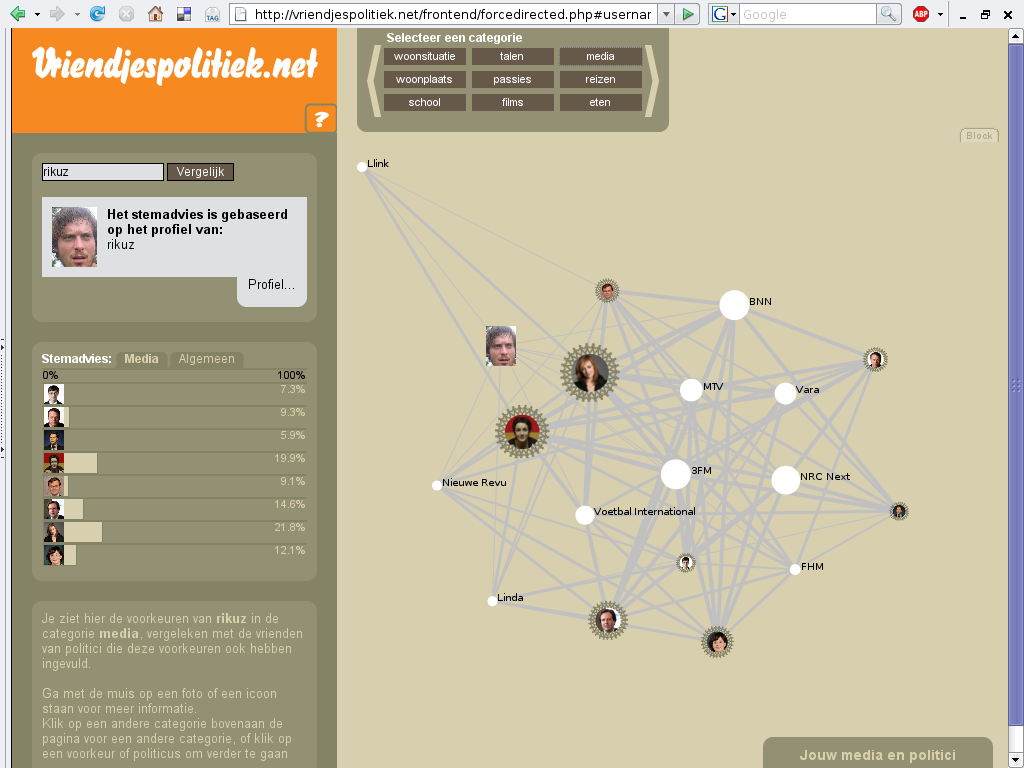Since the coming of online social networking sites, lots of people have, quite unconsciously,
their likes and dislikes, on public display. They not only show with whom they affiliate, but also what kind of music, movies, food, or even brands they prefer.
Since 1998 (and on paper since 1989), each general election in the Netherlands spawned a variety of so called voting recommendation machines. These systems typically ask the user to answer some questions after which they give the user a voting recommendation, based on the compatibility between his or her answers and the political parties. These questions are either based on party programs, or on the actual voting behavior in Parliament of the political party concerned over the last few years.
We have developed a post-demographic recommendation tool derived from these digital life software systems, while at the same time addressing them – based on the aggregated profiles of friends of political party leaders as they appear on the biggest Dutch online social network, Hyves. By providing appropriate visualizations we make both the demographics and relations of a group of friends apparent, and replicate the existing, arguably anti-participatory democratic, voting recommendation machines. Ultimately the goal is to create awareness of one’s digital public self – one’s data body (CAE, 95) – to create conscience of simple yet powerful profiling techniques, and the possibilities of the surveillance and control society. (Bogard 96, Deleuze 02). It is on purpose that we chose to highlight the entertaining quality and lightness of peer-based behavior this society is so immersed in.

